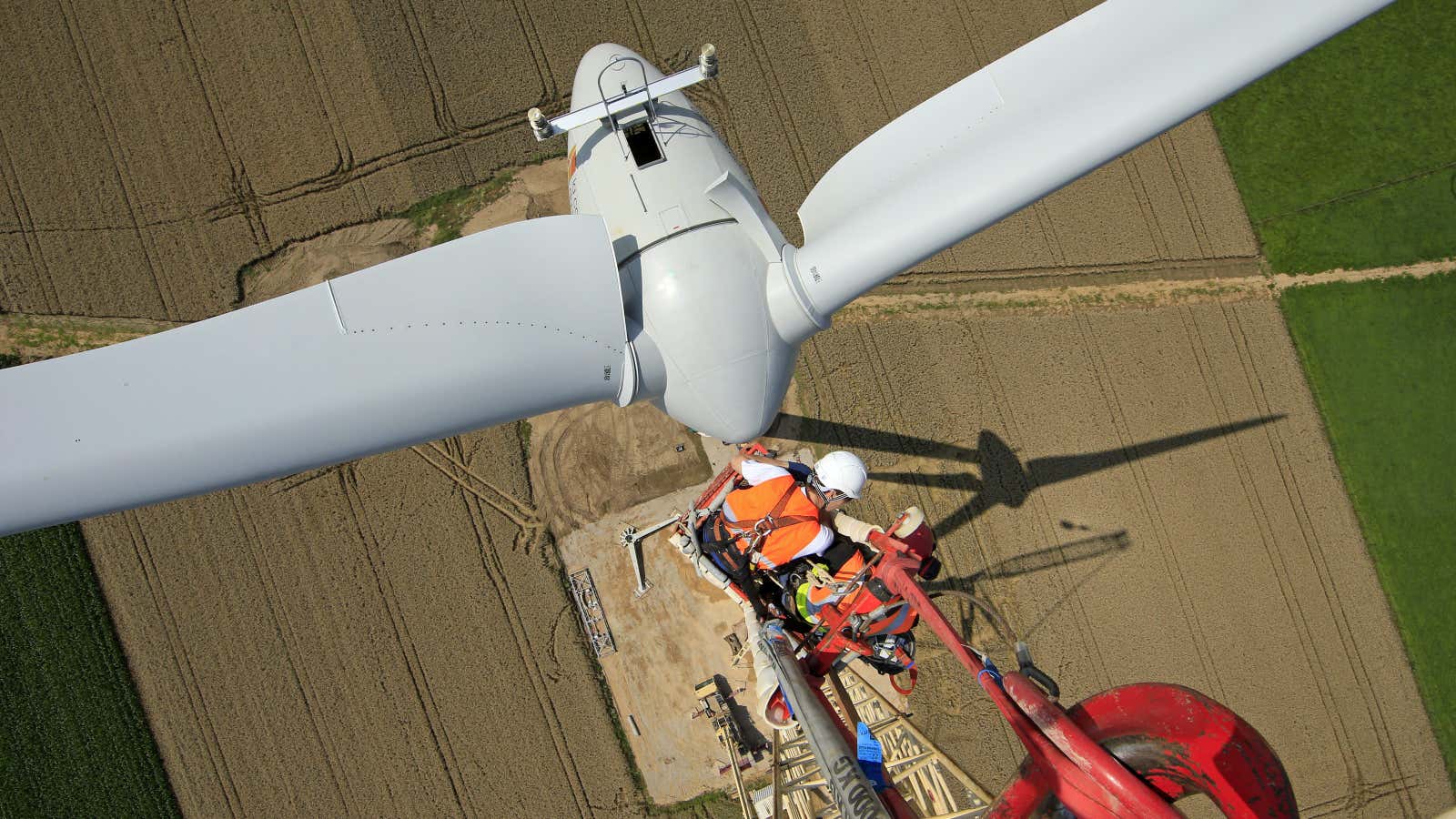The ongoing boom in prices for many commodities is a win for fossil fuel companies, and a big setback for renewables.
Over the last few months, oil and gas companies have seen their share prices buoyed by high oil prices and the steps many companies are taking to appease frustrated shareholders. Meanwhile, renewable energy companies are being dragged down by rising costs for raw materials and prolonged delays in international shipping.
Compared to early November, share prices of top oil and gas majors—including Shell, BP, Exxon, Chevron, and Total—have, on average, increased by 17%. Top wind and solar companies—including First Solar, Siemens Gamesa, and Vestas—have fallen nearly 25%.
The difference was on display in earnings reports this week. BP posted a $12.8 billion profit for 2021, its best in eight years, following similar rosy reports from its peers. Danish wind turbine manufacturer Vestas, meanwhile, saw its annual profit fall 77% compared to 2020, and said it would slash its shareholder dividend by 78%.
High steel prices and shipping delays are bad for the renewables business
The big problem for renewables companies is the price of steel, which comprises 70% of the final cost of a wind turbine and is nearly twice as expensive as it was before the pandemic. Prices for other important metals are also rising. Shipping delays and high freight costs, plus factory delays caused by covid outbreaks, have also hampered the delivery of planned projects, wind executives warned investors.
Overall, the volume of large-scale renewables projects to break ground in 2022 is expected to fall compared to the previous year for the first time since 2018, intelligence firm Rystad Energy said on Feb. 10.
Still, this is just a rough patch for renewables, not a death sentence. In January, Morgan Stanley analysts said now is a good time to buy stock in renewables companies—it is likely to rise in the future as the global transition to clean energy accelerates.
